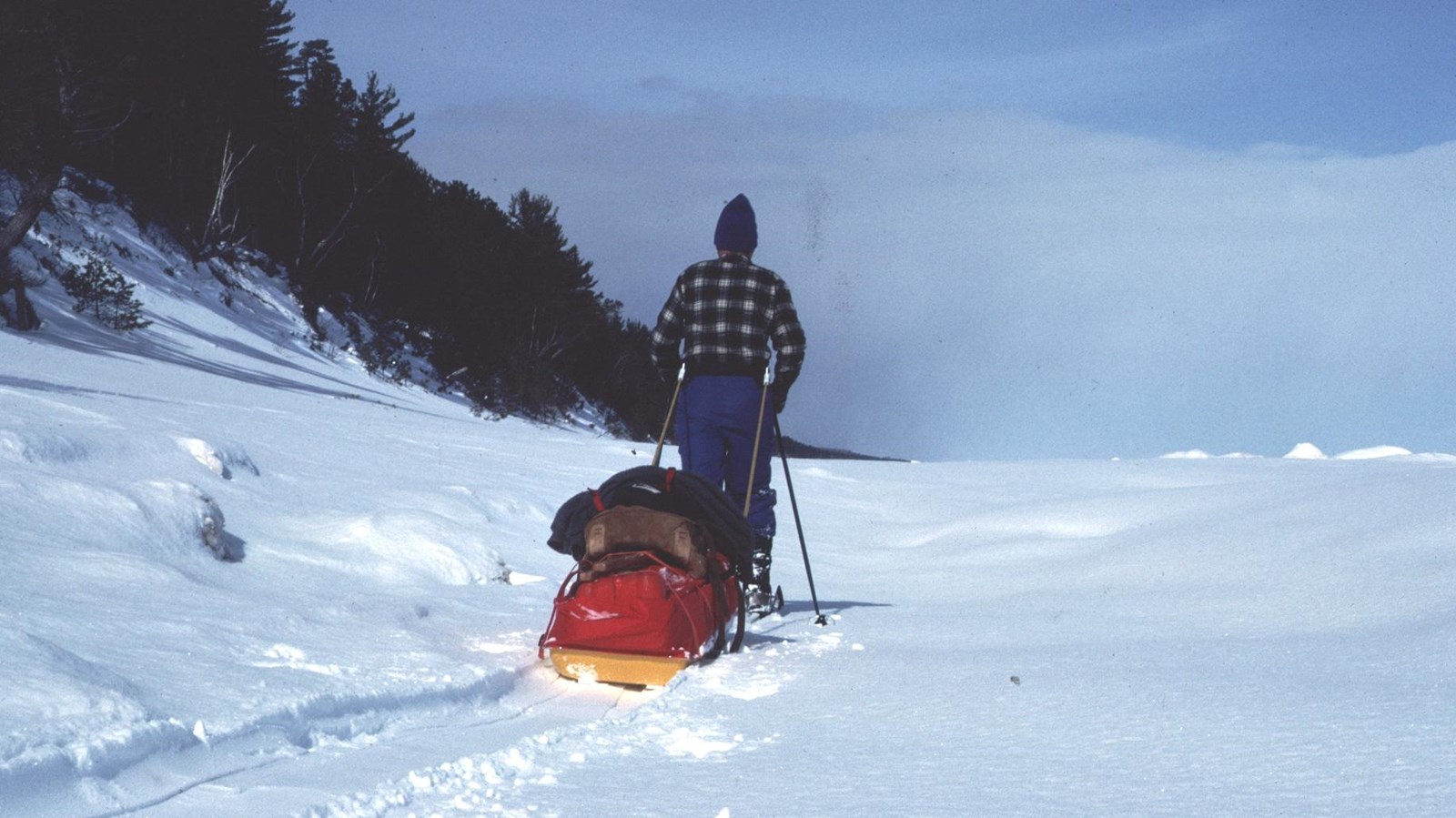Last updated: December 13, 2022
Place
Winter Camping at Pictured Rocks

Winter camping is only allowed at designated backcountry campsites. Access is via hiking trails. Expect large amounts of snow. You can hike, snowshoe, or ski to these sites. Except for Sand Point Road, all other park roads are snow-covered and NOT plowed.
Some roads become designated snowmobile trails from Dec. 1 to March 31. Alger County Road H-58 from Adams Trail Road to Grand Marais is a designated snowmobile trail (12/1 to 3/31) when snow-covered. Do not drive on these roads during this time as it ruins the groomed snowmobile trails. Drive-in campgrounds are closed from mid-October to mid-May.
Backcountry Winter Regulations
-
Backcountry winter campers need a reservation AND a permit (see the Backcountry Camping page for instructions).
-
Winter backcountry camping is permitted only in existing backcountry sites. Dispersed winter camping is NOT allowed.
-
Snowmobiles can access the main parking lots and trailheads where campers then snowshoe or ski to the backcountry sites.
-
Locating backcountry sites in deep snow may require use of GPS coordinates.
-
Use of stoves is recommended - campfires are not permitted unless you build them in established metal fire rings, which may be difficult to find in deep snow. Finding dry down and dead wood will also be difficult.
-
Overnight camping in parking lots is not permitted.
-
Snow is not soil! Since human waste cannot be buried in winter, you will need to pack out all human waste and toilet paper.
Your Safety Comes First!
As you can imagine, it's important to come for a winter visit completely prepared! This is especially true for winter camping, which can be a challenging experience.
An unexpected slip into a creek, the loss of a tarp in a blizzard, or a broken ski binding can quickly spell disaster. The old scout adage of “Be Prepared” is the best advice. Park staff encourage you to carefully plan your winter camping excursion into the park. Here are a few helpful suggestions:
-
Before you leave home, let someone know where you are going, how long you plan to be out, a description of your vehicle, where it will be parked, and when you plan to return. Write It Down!
-
Take plenty of liquids and snacks or food along with you ... maybe a little to spare in case something should happen.
-
Take repair supplies for your method of travel (skis, snowshoes, or snowmobile), and camping equipment.
-
Don’t expect your cell phone to work in the park. Many areas do not receive reception due to a lack of towers, cloudy conditions, hilly topography and heavy forest cover.
-
Know the local weather forecast and watch the weather. Lake-effect snow can occur at any time. Expect white-out conditions.
-
Take a compass and map and know how to use them. It is easy to get turned around in portions of the lakeshore when the days are short and the clouds block the sun.
-
Realize that the park ranger staff is reduced in winter and response times are extended due to winter conditions.
Having considered all of this, remember that winter is one of the most incredible seasons at the lakeshore. You will likely see very few people and will be able to enjoy a type of solitude unknown at other times of the year. Happy camping!
